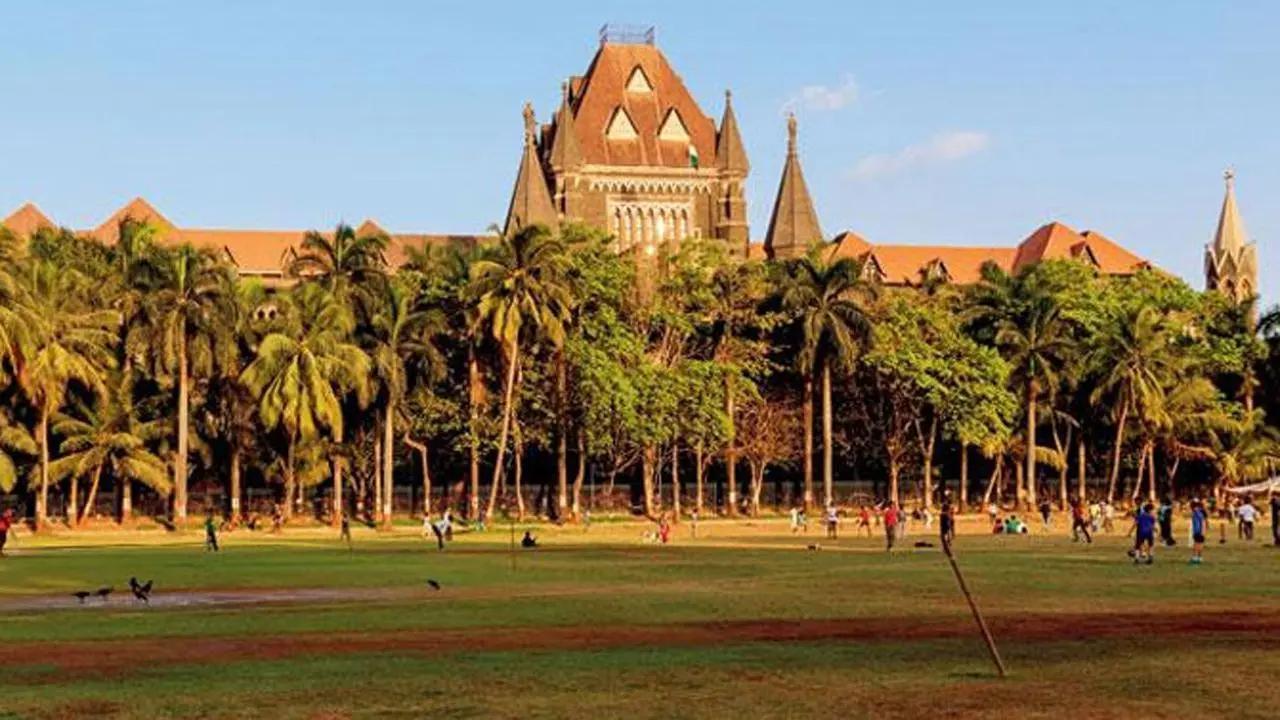The petition filed by the 'Gujarati Vichar Manch' (GVM) sought implementation of two circulars issued by the Union Home Ministry, Department of Official Language in 2008 directing the use of Hindi and regional language at par with English on signage boards and indicators at public places

File Photo/PTI
The Bombay High Court on Monday directed a trust to deposit Rs 1 lakh as a pre-condition to hear its public interest litigation seeking that signboards and banners with Devanagari text on par with the English language be put up at the city airport.
The petition filed by the 'Gujarati Vichar Manch' (GVM) sought implementation of two circulars issued by the Union Home Ministry, Department of Official Language in 2008 directing the use of Hindi and regional language at par with English on signage boards and indicators at public places.
Also read: No parole for TADA convicts as per rules in Maharashtra: Bombay High Court
A division bench of Acting Chief Justice SV Gangapurwala and Justice Sandeep Marne on Monday said the petitioner trust would have to first deposit Rs 1 lakh to prove its bonafide.
The court said if the deposit is made then the petition would be taken up for hearing.
The PIL alleged the respondent authorities had time and again failed to implement the circulars despite repeated reminders and requests by the petitioner trust.
"The petitioner merely seeks recognition towards the official and regional language of the state of Maharashtra as language is a highly emotional issue for the citizens of any nation. It has a great unifying force and is a powerful instrument for national integration,¿ the petition said.
The petitioner claimed prominent display of English language on signage boards etc at the airport in Mumbai is nothing but an act to foist the language on the indigenous people.
The trust claimed having the regional language at par with English would lead to greater convenience to the indigenous people of Maharashtra and Indian residents who are not well acquainted with English.
Meanwhile, the Nagpur bench of the Bombay High Court has refused to grant parole to a prisoner convicted under the Terrorist and Disruptive Activities (Prevention) Act, noting that convicts of "terrorist crimes" are not eligible for parole, as per rules in Maharashtra.
A division bench of Justices S B Shukre and M W Chandwani on December 2, 2022 dismissed a petition filed by convict Hasan Mehndi Sheikh, serving life imprisonment in the Amravati Central Prison, seeking regular parole to see his ailing wife.
Sheikh was convicted for various offences including under stringent provisions of the Terrorist and Disruptive Activities (Prevention) Act (TADA).
He approached the HC after the jail authorities rejected his application on the ground that he was not eligible for grant of parole under provisions of the Prisons (Bombay Furlough and Parole) Rules.
The Bombay High Court in its order noted that there was a specific provision in the Rules which disqualifies a convict under TADA from getting benefit of regular parole.
It is clear that there is a bar placed upon prisoners who are convicted for terrorist crimes, TADA is about terrorist crime, from being released on regular parole, the court said.
The petitioner is convicted under TADA and therefore he would not be eligible for grant of regular parole, the HC added.
Sheikh had in his plea relied on a 2017 judgment of the Supreme Court holding that even if a convict is found to be guilty under the TADA provisions, this would not disqualify him from seeking regular parole.
The high court, however, refused to accept this and said the prisoner in the SC case was from Rajasthan and hence not governed by the Rules for prisoners in Maharashtra.
The apex court has acknowledged the fact that many state governments have formulated guidelines on parole in order to bring out objectivity in the decision making and to decide as to whether parole needs to be granted in a particular case or not, the HC said.
This story has been sourced from a third party syndicated feed, agencies. Mid-day accepts no responsibility or liability for its dependability, trustworthiness, reliability and data of the text. Mid-day management/mid-day.com reserves the sole right to alter, delete or remove (without notice) the content in its absolute discretion for any reason whatsoever.
 Subscribe today by clicking the link and stay updated with the latest news!" Click here!
Subscribe today by clicking the link and stay updated with the latest news!" Click here!








